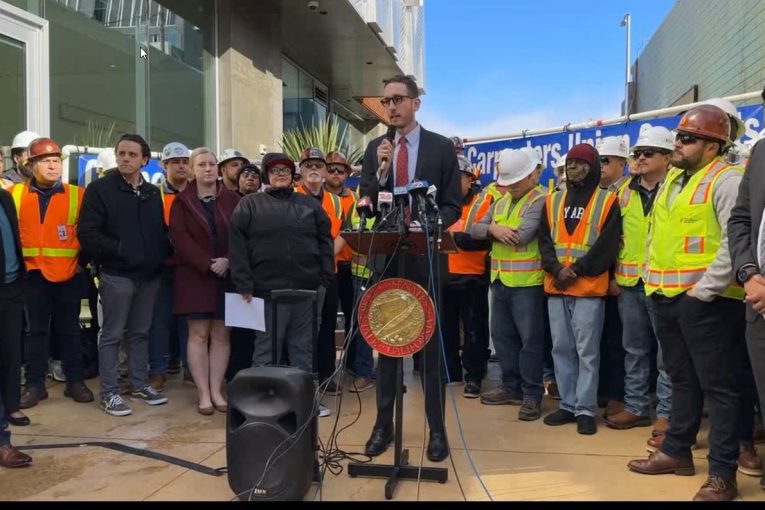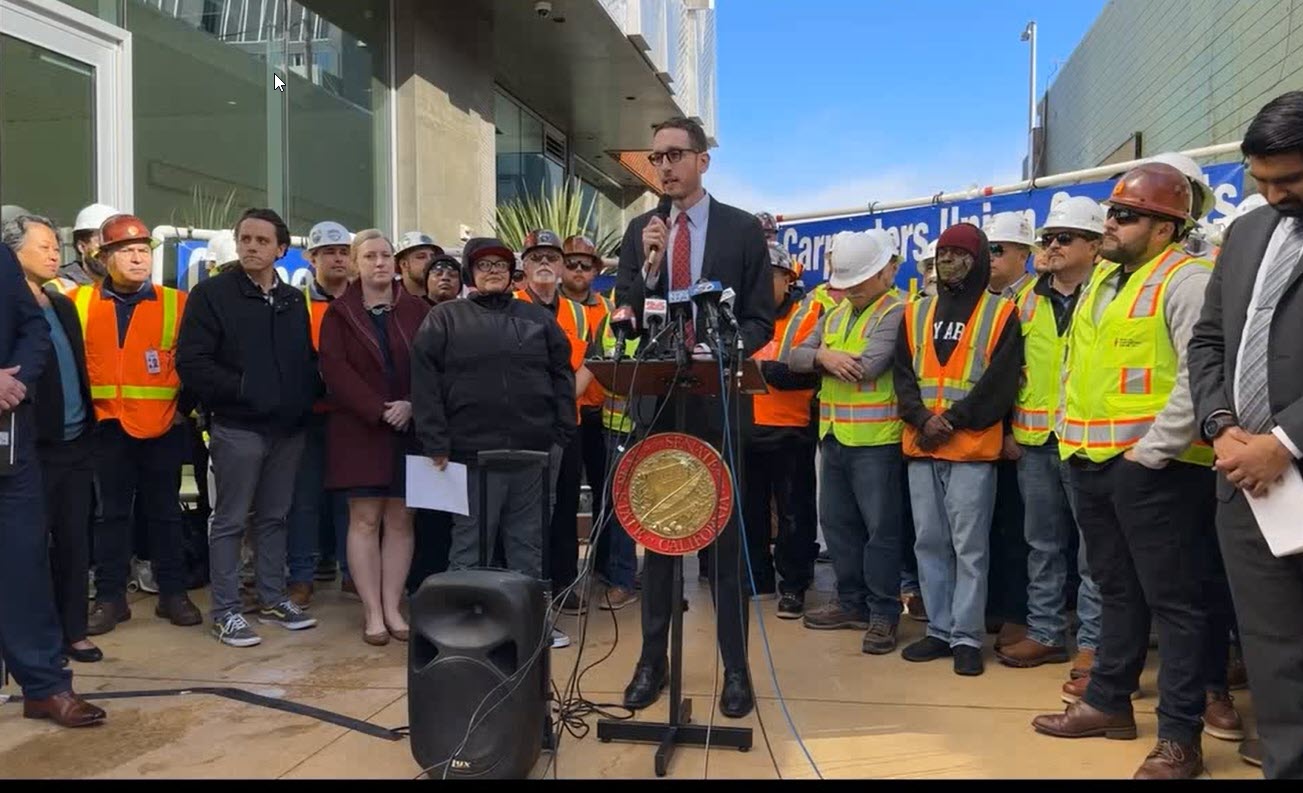

Special to the Vanguard
Sacramento, CA – Two of the critical housing bills are headed to the Governor’s desk for his likely approval.
On Tuesday, the Senate approved SB 4 and SB 423, authored by Senator Scott Wiener. The bills support the production of thousands of new homes in the coming years by expanding existing housing, streamlining processes, and allowing churches and nonprofit colleges to build affordable housing by right.
“Together the bills represent the most significant housing package passed through the California Legislature since 2017, helping set the state on track to meet its goal of building 2.5 million units of housing by 2031 to alleviate the affordable housing crisis,” Wiener’s office said Tuesday.
“Enacting SB 4 and 423 will add powerful tools to our arsenal in combating the housing crisis,” said Senator Scott Wiener. “The bills allow communities to move with renewed haste to build the 2.5 million new homes we need by 2031. Californians overwhelmingly want to see these homes built, which is why both bills passed by a wide margin with bipartisan support.”
SB 423
SB extends Senator Wiener’s SB 35 (2017), one of the state’s most successful tools for accelerating development of affordable housing. The bill passed 27-7 with bipartisan support.
SB 35’s streamlined approvals have proven to be enormously successful at increasing affordable housing production in communities failing to keep pace with their housing goals—helping develop over 18,000 units of affordable housing and tens of thousands of high-wage jobs in the four years since it went into effect.
With the law sunsetting at the end of 2025, Sen. Wiener’s new bill, SB 423, would extend its provisions—and add strong new labor standards signed into law last year by Governor Newsom that will ensure it continues to produce both affordable housing and stable, high-wage jobs for California workers. The bill has drawn support from a wide range of construction unions, including the California Conference of Carpenters, the District Council of Plasterers and Cement Masons of Northern California, Northern California District Council of Laborers, the Southern California District Council of Laborers, and the California-Nevada Conference of Operating Engineers. Together, these unions represent the majority of residential construction workers in California.
The bill was amended in the Assembly to strengthen environmental protections around the coast and in extremely high wildfire risk zones.
The bill was amended in the Senate to apply skilled and trained workforce requirements in steel-frame tall construction. Mixed income projects over 85 feet would now require skilled and trained workforce to receive streamlining, as long as the project receives at least 3 qualified bids.
SB 423 is sponsored by the California Housing Consortium, California Conference of Carpenters, the Inner City Law Center, the Local Initiative Support Corporation, and California YIMBY.
SB 4
SB 4 ensures that churches, faith institutions, and nonprofit colleges will be able to build affordable housing on their land without having to go through an expensive and difficult rezoning and discretionary approval process. It re-zones the property and ensures neither CEQA (California Environmental Quality Act) nor local political processes can be misused to stop these affordable housing projects. The bill passed 32-2 with bipartisan support.
A recent report from UC Berkeley’s Terner Center found that there are roughly 171,000 acres of land throughout the state that would be eligible for affordable housing under SB 4. One of the chief obstacles to affordable housing development is that affordable housing developers must compete against market rate developments for land. SB 4 opens tens of thousands of acres that affordable housing developers will have exclusive access to.
Any organization building this type of streamlined affordable housing must maintain the affordability of these homes for a minimum of 55 years for rental properties and 45 years for properties that can be owned. Additionally, density and height requirements are tied to what is deemed appropriate for affordable housing by state law.
California’s housing crisis continues to worsen, as jurisdictions across the state fall behind their goal of building 2.5 million homes in the next 8 years. Young families are leaving California in search of cheaper housing, kids can’t afford to live where they grew up, and evictions and displacement are spiking. Our homelessness crisis is worsening, and people are sleeping on their streets and in their cars in higher and higher numbers. SB 4 will allow churches and other nonprofit colleges to help alleviate this crisis by building affordable housing on their own property. These institutions already serve deeply important and central roles in our communities, and those that feel called to should be able to provide housing to those who need it.
The bill was amended in the Assembly Natural Resources Committee to improve environmental protections and assessments concerning active oil wells.
SB 4 is sponsored by the California Conference of Carpenters, Inner City Law Center, Jewish Public Affairs Committee, Non-profit Housing Association of Northern California (NPH), and Southern California Association of Non-profit Housing (SCANPH).
